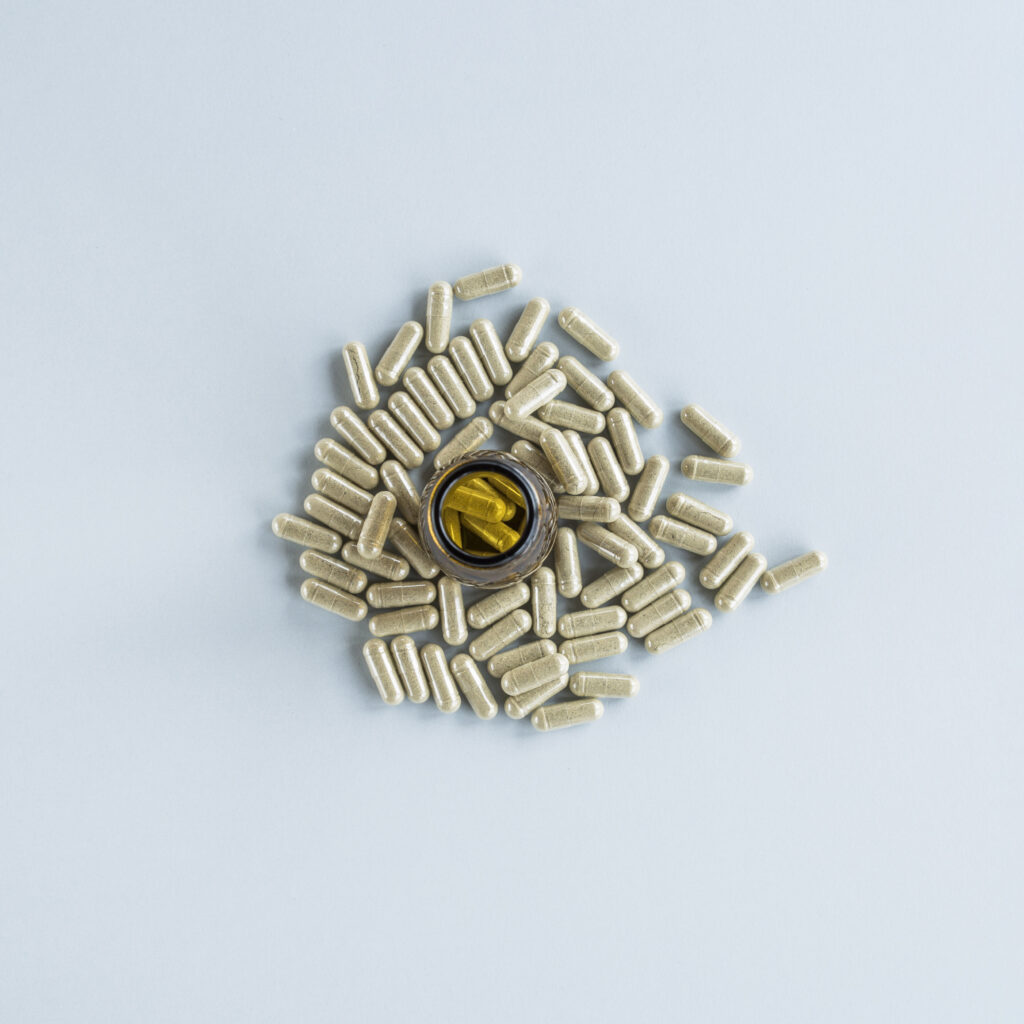The 8 Best Vitamins and Supplements for Stress, According to Dietitians

Chronic stress doesn’t just affect how you feel — it changes how your body functions. It drains key nutrients, weakens digestion, disrupts sleep, and alters hormone balance. Over time, these effects can leave you mentally and physically exhausted. Dietitians emphasize that while lifestyle habits like sleep, exercise, and mindfulness remain the foundation for managing stress, nutrition provides the building blocks your body needs to stay resilient.
Certain vitamins, minerals, and natural compounds help the nervous system adapt to pressure, balance stress hormones, and support mental clarity. The list below highlights eight nutrients that have been shown to make a difference, combining professional dietary insight with current research.

1. How Probiotics Strengthen the Gut–Brain Axis and Support Stress Resilience
The connection between the gut and brain — known as the gut–brain axis — is one of the most influential yet overlooked factors in stress regulation. When your gut microbiome is balanced, it communicates effectively with the nervous system, produces calming neurotransmitters like serotonin and GABA, and reduces inflammation that can heighten stress responses. But when the gut is disrupted by poor diet, antibiotics, or chronic tension, this communication weakens, often leading to mood swings, fatigue, and anxiety.
A 2024 review in Frontiers in Nutrition found that probiotic supplementation and diets that support gut bacteria diversity were linked with lower cortisol levels and improved mood regulation in adults experiencing stress.
Similarly, a 2025 meta-analysis in Psychiatry Research concluded that certain probiotic strains — especially Lactobacillus rhamnosus and Bifidobacterium longum — can positively affect mood and anxiety scores in people under chronic stress.
Bioma Probiotics: Supporting a Calmer Mind Through a Healthier Gut
Chronic stress doesn’t just impact your mood — it can also disrupt the balance of your gut microbiome. That’s why maintaining digestive harmony is essential for emotional resilience. Bioma’s probiotics are formulated to nourish beneficial bacteria that influence the gut-brain axis, helping to regulate stress hormones and support serotonin production naturally. By strengthening the gut’s ecosystem, Bioma probiotics promote better digestion, improved energy, and a calmer, more balanced state of mind — all key components of lasting stress management.

2. Magnesium: Regulating Nerves and Restoring Calm
Magnesium is often called “nature’s relaxant,” and for good reason. It regulates nerve impulses, muscle relaxation, and the body’s cortisol response. Stress increases magnesium excretion, creating a cycle of tension, fatigue, and poor sleep. Restoring magnesium levels helps break that loop. Dietitians typically recommend magnesium glycinate or citrate for better absorption and digestive tolerance. Green leafy vegetables, nuts, seeds, and whole grains are excellent dietary sources.
3. B Vitamins: Energy, Focus, and Emotional Stability
The family of B vitamins — especially B6, B9 (folate), and B12 — is vital for maintaining focus, producing serotonin and dopamine, and converting food into energy. Chronic stress can deplete these nutrients quickly. Supplementing with a balanced B-complex formula supports mental clarity, reduces fatigue, and helps regulate mood, especially for those facing demanding schedules or prolonged pressure.

4. Vitamin D: Enhancing Mood and Supporting Hormonal Balance
Vitamin D, known as the “sunshine vitamin,” is essential for immune health and emotional stability. Deficiency has been consistently linked to higher rates of anxiety and depression, particularly in regions with limited sunlight exposure. Vitamin D influences serotonin production and helps balance inflammation — two key mechanisms for managing stress naturally.
5. Omega-3 Fatty Acids: Protecting the Brain from Stress-Induced Inflammation
Omega-3 fatty acids, found in fish, flaxseed, and algae oils, play a vital role in maintaining brain cell structure and reducing inflammation. Chronic stress increases oxidative stress, which can impair cognitive function and mood. Adequate omega-3 intake counteracts this by strengthening brain membranes and supporting neurotransmission. EPA and DHA — the two main omega-3s — are particularly beneficial for cognitive health and emotional resilience.
6. L-Theanine: Promoting Relaxation Without Fatigue
L-theanine, an amino acid found naturally in green tea, promotes calm concentration by increasing alpha brain waves — the same state achieved through meditation. It helps reduce physiological markers of stress such as heart rate and cortisol, without causing drowsiness. Many dietitians suggest it for people who want to manage daily stress while maintaining focus.
7. Ashwagandha: An Adaptogen for Hormonal Balance and Recovery
Ashwagandha, a traditional Ayurvedic herb, supports the adrenal glands and helps balance cortisol levels. It has been shown to reduce anxiety, improve sleep quality, and enhance stamina. Unlike quick-acting relaxants, ashwagandha works gradually, strengthening the body’s capacity to adapt to long-term stress.
8. Vitamin C: Supporting the Adrenal System and Immunity
Vitamin C is concentrated in the adrenal glands, which produce stress hormones like cortisol and adrenaline. When stress is prolonged, vitamin C stores deplete, weakening immune defenses and energy production. Regular intake through citrus fruits, peppers, or moderate supplementation helps restore adrenal strength and overall vitality.

Building a Nutrient-Rich Strategy for Stress Management
While no single supplement can erase stress, a combination of key vitamins, minerals, and probiotics can make a measurable difference in how your body responds to it. Dietitians emphasize that these nutrients are most effective when paired with balanced meals, restorative sleep, and mindful movement.
Because gut health underpins so many of these processes — from nutrient absorption to neurotransmitter balance — it deserves special attention. Supporting your microbiome is one of the most powerful ways to build lasting emotional stability and energy.
Related articles



